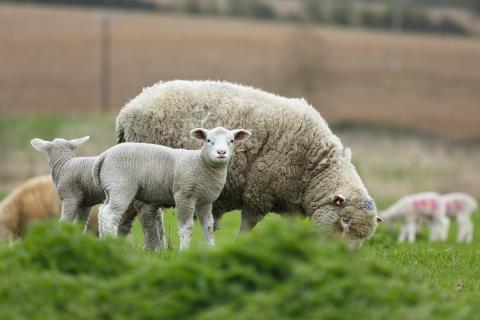Currently, 35% of lambs going to market have meat that is considered too fatty, but this new study shows that it’s the lambs which are heaviest at the point of weaning – when they switch from their mother’s milk to grazing – that go on to produce the leanest, most sought-after meat at market.
The study was carried out at Rothamsted’s ‘farm lab’, the North Wyke Farm Platform in Devon, where data was collected from 2,963 sheep over multiple years. The research team found that the leanness and musculature of lamb meat can both be successfully predicted from the growth pattern of the animal before weaning.
The results of regression modelling showed that lambs which were heavier at weaning (at 13 weeks of age) were significantly more likely to have leaner and more muscular carcasses when subsequently slaughtered. Although it is already well established that faster finishing lambs are known to be more cost efficient through reduced inputs, an economic analysis confirmed that these faster growing animals also produced significantly more valuable carcasses at slaughter, even after accounting for seasonal variation in lamb price that often favours early finishers. Carcasses from lambs which were in the heaviest third at weaning were most valuable, with an average carcass value £4.78 higher than lambs which were in the lightest third.
As the majority of heavier-weaned lambs leave the flock before lighter-weaned lambs, an increase in the average weaning weight could also lead to greater pasture availability for ewes in the latter stage of the current season, and thus an enhanced ewe condition and fertility for the next season.
The combined findings of this study therefore suggest that a stronger focus on ewes' nutrition before and during lactation could be a key driver for increasing system-wide profitability.
Download the related article below.



